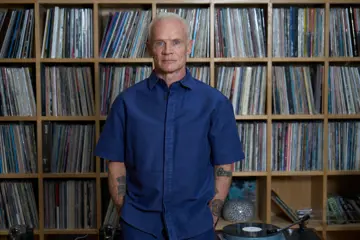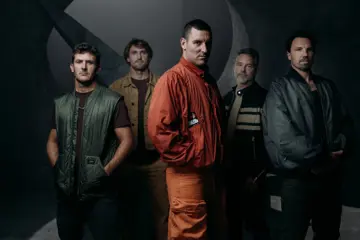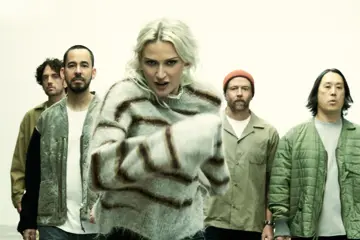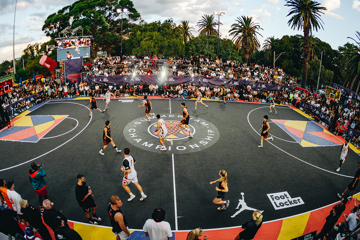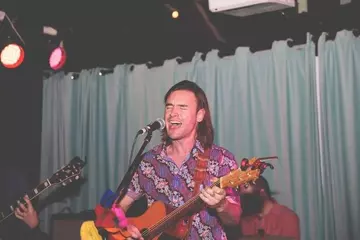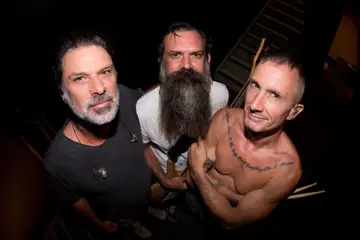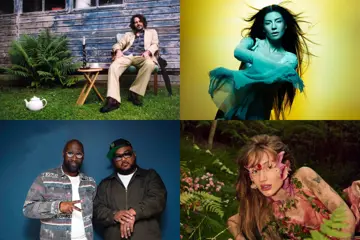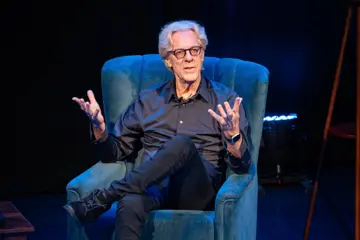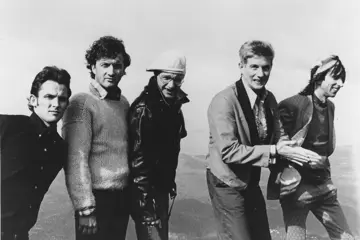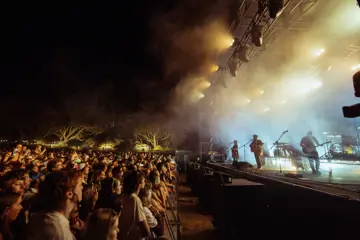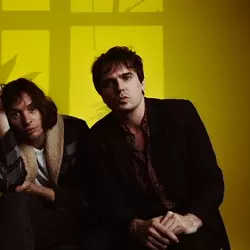 Deep Sea Arcade
Deep Sea ArcadeImagine arriving in the UK for the first time with your band, feeling jet-lagged yet full of excitement at the chance to play to people on the other side of the world. Expecting to play pubs and clubs, you find out you're playing a large hall and a journalist from revered music magazine MOJO is about to introduce you onstage. Would this be the dreaded empty venue dream every musician has?
“I'd seen video of Dappled Cities and Bluejuice play at The Great Escape [festival] and they were in pubs, so I expected we'd be playing little venues. When we rocked up at Komedia, a massive hall, I thought, 'Oh God there will be fifteen people here.' We'd only got off the place twelve hours before and were still feeling terrible and after he introduced us, we walked out to a full room, which was really cool,” exclaims a relieved Deep Sea Arcade vocalist Nic McKenzie.
“The tour was organised really well, we serviced a whole bunch of blogs and got BBC Radio 1 airplay and got write-ups in NME, so that set up the trip and made it really worthwhile. Bands can spend up to $40,000 touring over there and if it isn't well set up, it can be a real waste of time.”
That was the scenario for Deep Sea Arcade last year. After a couple of local single releases (Girls, Don't Be Sorry) and plenty of airplay for other songs they ventured over the ocean to lay the foundations for the eventual release of their album in Europe. All the while they were still working on completing their debut, Outlands, the result of a journey of many years that has seen the songs pass through a number of hands but which ultimately sounds like a lush, vibrant and cohesive collection of recordings.
Don't miss a beat with our FREE daily newsletter
“For a debut album I think it was totally necessary to take that long. I listen to it and hear a progression from the '60s-inspired tracks, which are kind of like Songwriting 101, and they were the building blocks to add all our other influences and progressions. When I listen to the album I hear that, where the ideas began and the actual formation of the personality of the music happened. I think it is really important to show that progression of the music on the first album and it couldn't have been done without taking a bit of time with it.”
Using a number of tracking engineers (Berkfinger, Tim Whitten) and then employing separate mixers meant that different ears, tastes and opinions shaped the sound of Outlands, allowing different moods, from cinematic and dreamy to melodic and pop-heavy, to populate their diversity. “We used Dan Grech-Marguerat [The Vaccines and protégé of Nigel Godrich] when he initially contacted us after our manager [Andy Cassell] tried to get Godrich himself. Grech-Marguerat said he was interested in doing some stuff on the album, but nothing happened for six or seven months and then we heard The Vaccines record and Andy said he had contacted us, so we hooked that up. His mixes really brought out the darkness and the English vibes in those songs that he mixed - Seen No Right, Lonely In Your Arms and Girls. The other guy we used was Doug Boehm, who did The Vines and mixed all the Elliott Smith records. He was someone we found out about and was on the mix list because of the Smith stuff, so we hooked up with him. We were really lucky to work with those guys and we were able to get all the ingredients in there through tracking with Tim Whitten and Berkfinger and then these amazing mixing engineers came in and carved out the bits and pieces and created the soundscapes. The reason it is so cohesive is that we used the same recording methods, but then the mixing brings it all together.”
The process of writing, arranging, recording and mixing has taken a further step by influencing the way the band now plays many of the songs live compared to their pre-recorded incarnations. It also gave new life to songs that the band knew were good but had never been able to find a way to do them justice onstage.
“Totally, the song Granite City was done by a remix guy who stripped all the synth parts and arpeggiated keyboards back to their bare essentials with one synth, bass line, a drum groove and vocals. Before that we didn't play it live as it sounded too sweet, without enough darkness. Richard [Norris, from The Time & Space Machine] brought that song to life and now we play it the way he mixed it. In recording, you tend to put so many layers on because you can and that was the great thing collaborating with great mixers. We knew what we wanted, but they listened to the songs objectively and gave us their honest opinion; they killed our babies for us,” McKenzie chuckles.
McKenzie and bassist Nick Weaver, the core of Deep Sea Arcade, have a strong conceptual idea of how they want to present the band, both musically and visually. McKenzie is heavily involved in the music videos and artwork and talks enthusiastically about complementing their music with other mediums.
“For Nick and I the music is something we've got a good idea about, the universe it comes from and the place that we think it exists in. Because of the cinematic nature of it, the visual representation is important too. When we get artwork right we know that is representing it well. It is important to create an identity and exciting to push boundaries and wonder what else we can make and change things up a bit. We just made a video and the concept is we are recording in a mansion, but we're not recording using conventional methods. Instead of recording handclaps we are slapping people's bottoms. It is a bit sillier than what we normally do, but it is still true to who we are. When we are involved in it we come up with ideas that might be daring and silly but it still fits with who we are. That also then feeds back into the music and so that evolves too. People appreciate that I think, rather than just using stuff a record label pushes through. Ivy League as a label are great; they let us take the reins and let us control the way we are perceived. Sometimes we have made stupid videos and they say you can put that out but it might have these effects, but then they leave it to us to make the call.”
The excitement for the release of Outlands, even after its long gestation, is obvious from McKenzie's enthusiasm in discussing it. “It's a strange feeling. I sat in on the design of the album sleeve and I'm holding the physical copy now and it actually feels really special. I thought holding it wouldn't be that amazing but it does, holding the digipak in your bands and thinking, 'Wow, this is our record!'”

